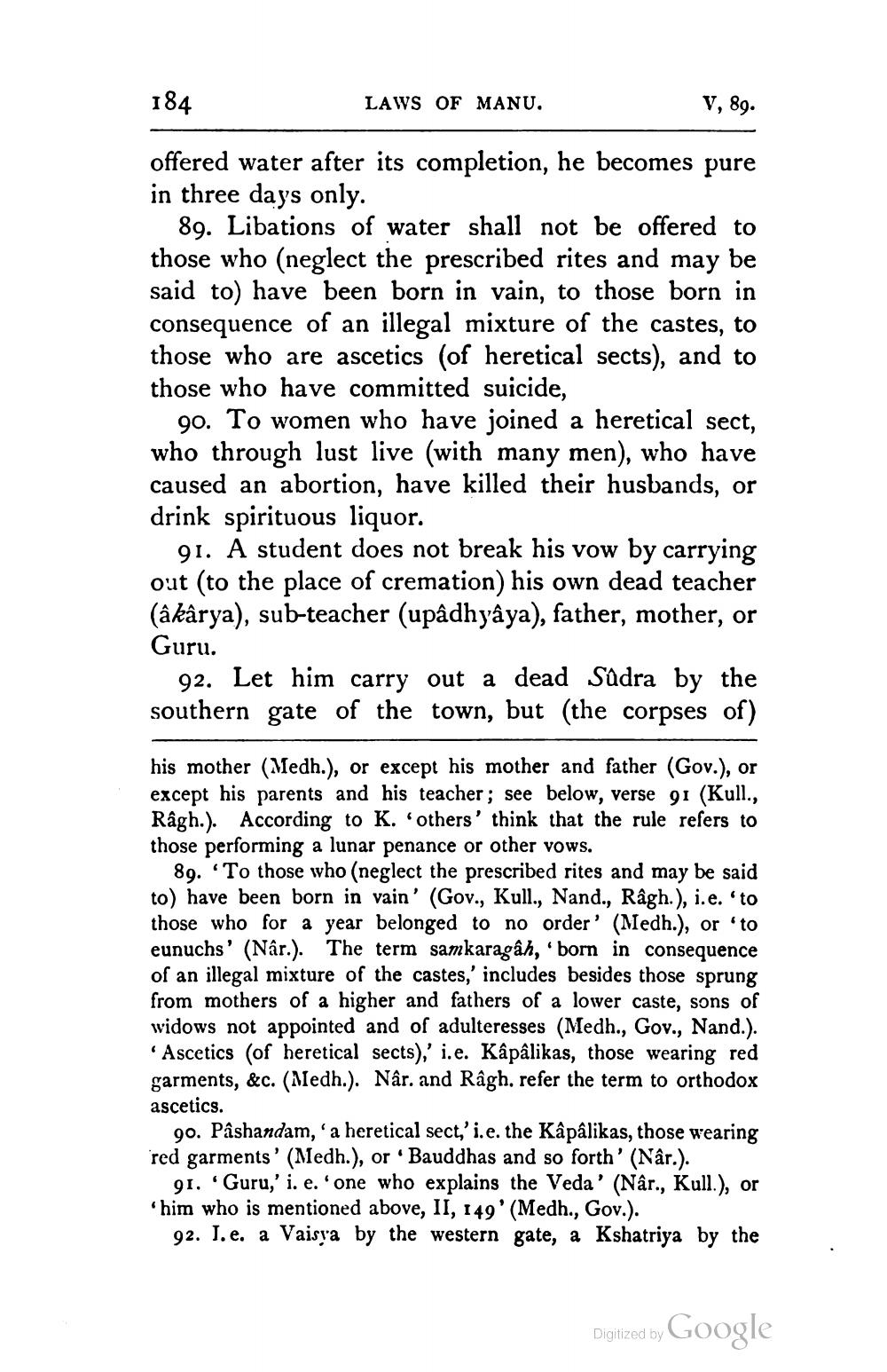________________
184
LAWS OF MANU.
V, 89.
offered water after its completion, he becomes pure in three days only.
89. Libations of water shall not be offered to those who (neglect the prescribed rites and may be said to) have been born in vain, to those born in consequence of an illegal mixture of the castes, to those who are ascetics (of heretical sects), and to those who have committed suicide,
90. To women who have joined a heretical sect, who through lust live (with many men), who have caused an abortion, have killed their husbands, or drink spirituous liquor.
91. A student does not break his vow by carrying out (to the place of cremation) his own dead teacher (âkârya), sub-teacher (upâdhyâya), father, mother, or Guru.
92. Let him carry out a dead Sadra by the southern gate of the town, but (the corpses of)
his mother (Medh.), or except his mother and father (Gov.), or except his parents and his teacher; see below, verse 91 (Kull., Râgh.). According to K. others' think that the rule refers to those performing a lunar penance or other vows.
89. "To those who (neglect the prescribed rites and may be said to have been born in vain' (Gov., Kull., Nand., Râgh.), i.e. 'to those who for a year belonged to no order' (Medh.), or 'to eunuchs' (Nar.). The term samkaragah, 'born in consequence of an illegal mixture of the castes,' includes besides those sprung from mothers of a higher and fathers of a lower caste, sons of widows not appointed and of adulteresses (Medh., Gov., Nand.). * Ascetics (of heretical sects),' i.e. Kâpâlikas, those wearing red garments, &c. (Aledh.). Nâr. and Râgh. refer the term to orthodox ascetics.
90. Pâshandam,'a heretical sect,' i.e. the Kâpâlikas, those wearing red garments' (Medh.), or Bauddhas and so forth' (Nâr.).
91. Guru,' i. e. one who explains the Veda' (Nar., Kull.), or him who is mentioned above, II, 149' (Medh., Gov.). 92. I.e. a Vaisya by the western gate, a Kshatriya by the
Digitized by Google




